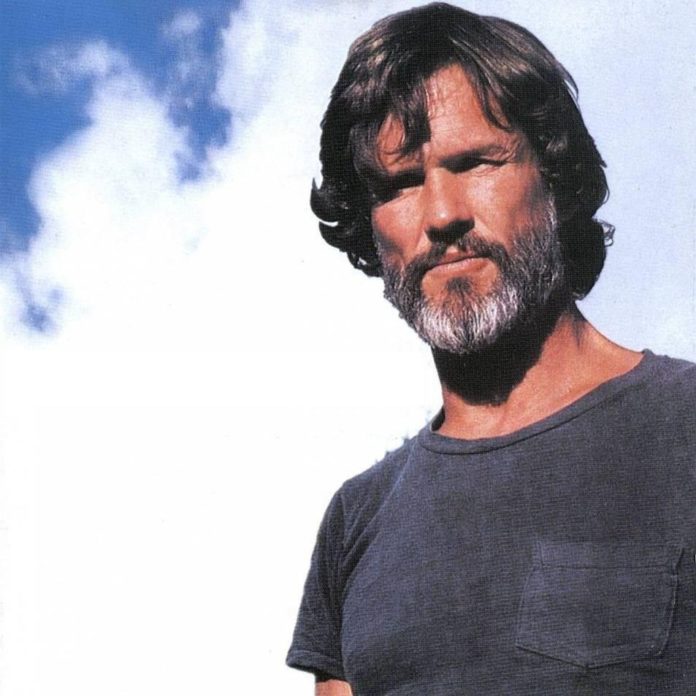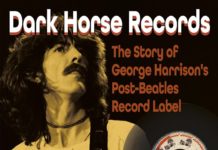A New Kind of Country Songwriter
In the late 1960s and early 1970s, country music was largely associated with the polished, Nashville-produced sound that dominated the charts. While the genre boasted big stars like Patsy Cline, Johnny Cash, and Loretta Lynn, the content of many country songs was formulaic, focused on familiar themes like love, heartbreak, and rural life. Kristofferson broke that mold.
He brought a literary quality to country music that hadn’t been seen before, infusing his lyrics with the depth, introspection, and gritty realism of a novelist. Songs like “Me and Bobby McGee,” “Sunday Mornin’ Comin’ Down,” “Help Me Make It Through the Night,” and “For the Good Times” showcased Kristofferson’s knack for storytelling and his ability to capture the raw emotions of ordinary life. He wrote about flawed characters grappling with existential crises, addiction, and despair—subjects that resonated deeply with listeners beyond the confines of country radio.
It’s hard to overstate just how revolutionary Kristofferson’s songwriting was at the time. While many country hits were straightforward and sentimental, Kristofferson’s lyrics were complex, filled with metaphor and social commentary. His songs crossed over into pop, rock, and folk, allowing him to influence artists far outside the country genre. Janis Joplin’s rendition of “Me and Bobby McGee” became a posthumous No. 1 hit and cemented his status as a master songwriter. Johnny Cash’s recording of “Sunday Mornin’ Comin’ Down” became an anthem for a restless, disillusioned generation.
Kristofferson’s success as a songwriter opened the door for others to explore darker, more personal themes in country music. Artists like Willie Nelson, Waylon Jennings, Johnny Cash, and Merle Haggard—with whom Kristofferson would later form the legendary Highwaymen—helped usher in the outlaw country movement, which rejected Nashville’s commercial sound in favor of raw, independent, and often rebellious artistry. His work laid the groundwork for a new generation of songwriters, from Steve Earle to Townes Van Zandt, and beyond, who looked to him as a mentor and a pioneer.
A Maverick on Screen
As if revolutionizing country music wasn’t enough, Kristofferson also carved out a remarkable career in film. His screen presence, characterized by a rugged charm and a deep, weathered voice, brought him to the attention of directors and audiences alike.
Kristofferson’s first major acting role came in 1971’s The Last Movie, directed by Dennis Hopper, but it was his performance in Pat Garrett and Billy the Kid (1973) that established him as a force in Hollywood. Playing the iconic outlaw Billy the Kid alongside James Coburn’s Pat Garrett, Kristofferson’s portrayal brought a depth and vulnerability to the character that had rarely been seen in Westerns before.
His acting career continued to soar with roles in critically acclaimed films like Alice Doesn’t Live Here Anymore (1974), A Star Is Born (1976)—which earned him a Golden Globe Award for Best Actor—and Heaven’s Gate (1980), a film that has since become a cult classic. Throughout the 1970s and 80s, Kristofferson balanced his acting with his music career, moving between the stage and screen with ease.
Perhaps one of his most memorable roles came in the Blade trilogy (1998-2004), where he portrayed Abraham Whistler, mentor to Wesley Snipes’ Blade. His performance brought gravitas to the role and introduced him to a whole new generation of fans.
The Highwayman and the Outlaw Spirit
In the mid-1980s, Kristofferson teamed up with Waylon Jennings, Johnny Cash, and Willie Nelson to form the supergroup The Highwaymen. Their first single, “Highwayman,” became a massive hit, and the group went on to release three albums, solidifying their place as country music legends.
The Highwaymen symbolized more than just the union of four of country music’s greatest talents; they embodied the outlaw spirit that had been brewing for years. The group represented a rejection of Nashville’s establishment and a celebration of independence, camaraderie, and creative freedom. Together, they performed and recorded music that was unapologetically raw and rebellious, becoming icons for those who admired artists willing to buck the system.
Awards, Accolades, and a Lifetime of Achievement
Throughout his career, Kris Kristofferson earned numerous awards and accolades that underscored his influence in both music and film. In 2004, he was inducted into the Country Music Hall of Fame, and in 2014, he received the Grammy Lifetime Achievement Award. Despite his countless accolades, Kristofferson remained humble, often downplaying his own abilities as a singer and focusing instead on the craft of songwriting.
His work also earned him a place in the Songwriters Hall of Fame and the Nashville Songwriters Hall of Fame, and his songs continued to be recorded by artists across multiple genres, from Ray Price to Elvis Presley, Janis Joplin to Bob Dylan.
Personal Sacrifice and a Lifetime of Adventure
Kristofferson’s journey wasn’t without personal sacrifice. He famously walked away from a promising military career to pursue his dream of becoming a songwriter, a decision that led to his family disowning him. For years, he struggled to find success, taking odd jobs to support his family while continuing to write and perform. But his persistence paid off, and his career is a testament to the power of following one’s passion.
Throughout his life, Kristofferson remained a maverick, a man who followed his own path, regardless of the consequences. Whether it was in his music, his acting, or his personal life, he embodied the spirit of freedom and independence that he so often wrote about in his songs.
The Enduring Legacy of Kris Kristofferson
Kris Kristofferson’s influence can be felt far beyond the borders of country music. His songs continue to be covered by artists across genres, his films remain iconic, and his outlaw spirit continues to inspire generations of musicians, songwriters, and actors. He was more than just a country singer or a movie star—he was a cultural force who changed the way we think about music, art, and the role of the artist in society.
His passing in September 2024 at the age of 88 marked the end of an era, but his legacy will live on through his timeless songs, his unforgettable performances, and the countless artists he influenced. Kristofferson’s work reminds us that great art often comes from those who are willing to take risks, defy expectations, and stay true to themselves.
In the words of his own song, Kristofferson truly “helped us make it through the night”—and his influence will continue to help guide us through many more.







